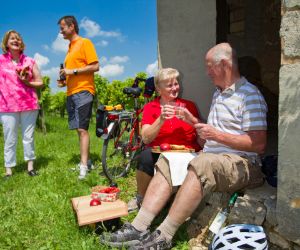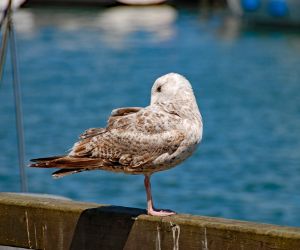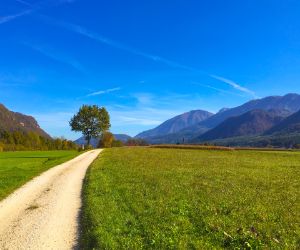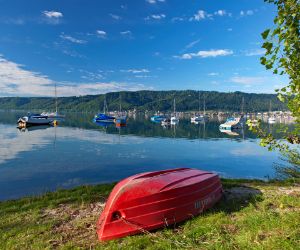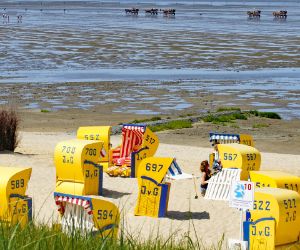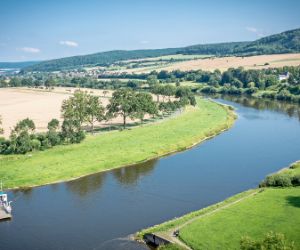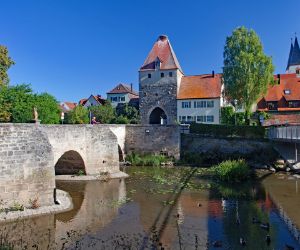The classic among the river cycle paths
Today, the Danube Cycle Path is a classic and used by thousands of cyclists every year. The cycle path along the Danube was one of the first river cycle paths and is still one of the most popular. Without significant slopes you can cycle through the beautiful landscapes along the river, which makes the bike path along the Danube very attractive for less trained and families. You can decide for yourself which section is the most beautiful. Every day on the Danube offers something special.
Passau – Vienna
In Austria you cycle along the Danube from Passau to Vienna. This part is also known as the ‘classic’ on the Danube. The beautiful landscapes of Austria accompany you on your tour. Visit Baroque cities, fruit trees in the Wachau or modern cultural hotspots like Linz. The Danube bend at Schlögen is a breathtaking spectacle of nature, because here the granite forces the river to make a 180-degree change in direction. The Wachau with the Strudengau and Nibelungengau leave you wanting for nothing where food is concerned. Whether with apricot dumplings or wines you will be spoiled here in the numerous taverns and inns. The destination of this stage is Vienna. The Austrian capital has much to offer. You should not miss the Schönbrunn Palace, the Danube Island or the 1st district with the ring road.
Schärding - Vienna
As an alternative to the classic Passau - Vienna section, you can also start in the famous Upper Austrian Baroque city and cycle through the Machland and the Wachau to the German capital on a cycle tour from Schärding to Vienna.
Salzburg – Vienna
The cycle tour from Salzburg to Vienna connects the two cities where Mozart lived and worked. From Salzburg you follow the Salzach River, then continue on the Inn cycle path and finally from Passau on the Danube Cycle Path. Cultural highlights such as the Silent Night Chapel on Oberndorf, the oldest castle in Central Europe in Burghausen are on the way. The last part of the Danube is shortened from Krems by train.
Donaueschingen – Donauwörth
The cycle tour from Donaueschingen to Donauwörth takes you from the source of the Danube in Donaueschingen and through the fascinating landscape of the Baar. The path trails through the Black Forest and finally through the Swabian Alb. There are many cultural highlights from Oberschwaben to Donauwörth, as well as the wild and romantic Danube River. On the Bavarian Danube from Regensburg, known for its old town, you can taste culinary delights. Then you meet the magnificent Danube breakthrough at Kelheim or the northernmost point of the Danube. Finally the city of Passau is reached, where the Inn and Ilz flow into the Danube and offer a unique natural spectacle.
Donauwörth - Passau
Also on the stage from Donauwörth to Passau about 300 bicycle kilometers are covered. Starting from Donauwörth to Ingolstadt and on to Kelheim, where the magnificent Danube Gorge and the northernmost point of the Danube are on your way. Then it goes on to Regensburg, known for its beautiful old town, which is a World Heritage Site. From Regensburg along the Bavarian Danube, a region that also boasts culinary highlights. Until finally the bishop residence Passau is reached, where Inn and Ilz flow into the Danube and offer a unique natural spectacle.
Vienna - Budapest
From Vienna to Budapest you travel along the Danube in Slovakia and Hungary. Here you follow the marking ‘Euro 6’ or the red ‘C’. You’ll take in no less than three capital cities on this tour – Vienna, Bratislava and Budapest. During the early stages of the tour you will cycle through the riparian forests of the Danube floodplains and the Lobau. Many corn and sunflower fields will guide your way. A true natural spectacle is the ‘Szigetköz’ between Mosonmagyarovar and Komárom. Numerous castles and palaces accompany you on this cycling trip to the Hungarian capital.
Read also the travel story from the cycle tour from Vienna to Budapest in our Cycling Blog.
Perfect bike experience with children along the Danube
The Danube Cycle Path also offers the perfect cycling experience for families. Due to the flat nature of the paths and the accommodation designed for cyclists and families, you can enjoy a variety of cycling tours with children. On shorter stages you can explore the Danube, of course, also take a boat trip. Exciting recreational activities along the way also ensure a successful cycling holiday on the Danube with the whole family.
The special kind of cycling holiday on the Danube
Where, if not on the Danube? Cycling and sailing trips with overnight accommodation in floating hotels offer a very special cycling holiday. You spend the night in a cabin and enjoy the evenings on board relaxing the sun deck. You do not have to pack your suitcase every day, as the ship will accompany you along the way.
Afterwards you will find all our bike & boat tours on the Danube. Take your time and decide on a route with the ship of your choice!
The source of the Danube
The origin of the Danube lies in Germany, near Donaueschingen. The source is the union of the rivers Brigach and Breg, which spring from the Black Forest. A well-known German saying is ‘Brigach und Breg bringen die Donau zuweg’ (Brigach and Breg brig the Danube along).
Length of the Danube
The Danube is the second longest river in Europe after the Volga. From the source in Donaueschingen to the mouth of the Black Sea, the river meanders 2850km through Europe.
Cycling on the north or south bank of the Danube
The Danube Cycle Path runs on both the north and south banks. The side can be changed by using bridges or ferries. Of course you will not miss the most beautiful sections of the Danube on the route of our bike tours.
Height profile
The Danube springs in Donaueschingen at about 680 vertical metres and opens at sea level in the Black Sea.
Donaueschingen
Although Donaueschingen is only a small town, it is very important for the Danube region. This is where the famous river springs and made this town famous. The residential town on the edge of the southern Black Forest, with proximity to Lake Constance has much to offer. For instance, the princely Fürstenberg Castle, or the colourful Art Nouveau buildings in the city centre. Even a visitor to the Fürstenberg Brewery will not miss out on the sight seeing programme.
Ulm
The university town on the Danube is known for the Gothic style Ulm Münster. But in Ulm there is much more to discover, such as the centre with the Ulm Museum, the Music School and the Dreisparten Theatre on Münsterplatz. The fishing district of Ulm Town Hall, the Wiblingen monastery or the Ulm City Wall will make you want to linger.
Donauwörth
Where Wörnitz flows into the Danube is Donauwörth, also known as the Bavarian Swabian Donauperle. The Reichsstaße with its pastel-coloured houses and the Riedertor section of the city wall are must-sees. In the Liebfrauenmünster you have the opportunity to climb the 57m high church steeple and enjoy a wonderful view of the city.
Ingolstadt
Ingolstadt is home to the first university in Bavaria, which opened in March 1472. Take a visit to the well-preserved fortifications. The tourism association also offers an adventure tour to Viktor Frankenstein, an ideal trip for those interested in fairy tales and myths from the history of modern medicine.
Regensburg
The Episcopal city of Regensburg on the Danube is known for its well-preserved centre. Landmarks such as the Stone Bridge or the Gothic cathedral with its twin towers show off the history of the city. Stroll through the squares and markets of the city and enjoy the historic views.
Passau
The German border town of Passau is also known as the Three River City. Here the Inn and Ilz flow into the Danube, each with a different colour. Take the opportunity to have a boat trip and experience this spectacle up close. Then we recommend a walk to the Veste Oberhaus, a fortress from the 13th century. There is also a very nice restaurant where you can take in the view and see the three rivers once more.
Schärding
Schärding is actually on the Inn Cycle Path. However, this baroque city is also a wonderful starting point for a cycle tour along the Danube. Take a stroll over the Silberzeile or visit the Bums’n tavern to eat a ‘Bratl in der Rhein’. Or visit the other numerous sights such as the Passau Gate, the former hospital church and the Linzer Tor.
Linz
In Linz, the cultural capital of 2009, history meets modernity. A 20-meter high Trinity Column made from white marble stands in the main square. Three times a day you can also listen to the Linz glockenspiel here. The global company Voesalpine AG has its headquarters in Linz, and offers visitors and insight into the world of steel production.
Melk
Melk is home to one of the most famous Abbeys in Austria. Melk Abbey, an 11th century Benedictine monastery, was built in Baroque style. Admire the collegiate church decorated with gold statures or the huge library of medieval manuscripts. The Baroque marble hall with ceiling fresco and red marble walls will amaze you.
Krems
The richly decorated doors, bay windows and architectural treasures bear witness to the history of the former port city of Krems. Due to the unmistakable mountain location, you can already see the Bendiktinerstift Göttweig from the cycle path. It’s a magnet for pilgrims from all over the world. If you like something more comfortable, you should pay a visit to the private distillery Hellerschmid. It offers local Wachau wines and regional specialities.
Vienna
The Austrian capital was the cultural and political centre of Europe in the 19th Century. Here, of course, the Empire ruled and has influenced the character of the city. A carriage ride from St Stephen’s Cathedral on the ring road is recommended, because you pass many attractions such as the City Hall, the Vienna Orchestra and the Parliament. Enjoy a Viennese Melange in a classic coffee house. Or taste a Wienerschnitzel (veal) with potato salad in a traditional inn.
Bratislava
The Bratislava Castle, which was the original seat of the rulers and is now a city landmark, can be spotted from afar as you travel along the cycle path. From here you can take in a good view of the city. In the town hall square you can enjoy the flair of the Slovak capital. The Michalska brana (Michael’s Gate), which is the only preserved gate of the city fortifications, is also worth a visit, there’s also a well-known weapons museum here.
Györ
Györ was one of the last outposts before Vienna so was a very important place during the Turkish wars. Even today, the city is one of the most important industrial sites in Hungary. The car factory Audi, and the model railway manufacturer Märklin are situated here. The old town, with the town hall, Kármelita templom (Carmelite Church) or the bishop’s castle are worth seeing. Or enjoy the evening in one of the numerous restaurants with excellent cuisine.
Esztergom
Esztergom is one of the oldest cities in Hungary. The Classicist Esztergom Basillica can be spied from afar during your cycle tour. The Cathedral of the Assumption and St. Adalbert is one of the largest churches in Europe. The painting of Mary in heaven is on the altar and was painted by Michelangelo Grioletti. The altarpiece, with dimensions 13.5 x 6.5m is one of the largest in Europe and was painted on canvas.
Budapest
The Hungarian capital is also known as the city of nine bridges. The Danube flows directly through the city and divides it into two parts. The towers of the Halászbástya (Fisherman’s Bastion) offer wonderful views of the city. Or stroll along the Széchenyi Chain Bridge into the old town. The castle palace with its large collection Hungarian art is worth a visit. The parliament building is impressive and acts as a landmark for Hungary, sitting directly on the Danube. The Palace of Westminster in London was the inspiration for this neo-Gothic building.
The Danube cycle path starts in the German town of Donauschlingen.
The Danube cycle path is 2850 kilometres long. Especially the part from Donauschlingen to Budapest is considered a well-developed cycle path.
The Danube cycle path leads through eight countries: Germany, Austria, Slovakia, Hungary, Croatia, Serbia, Bulgaria and Romania.
The ideal travel time for a cycle holiday along the Danube cycle path is from April to October. In general, however, you can ride the cycle path all year round as soon as the sun is back and the cycle path is in good condition.
The Danube cycle path is classified as an easy tour. The cycle path runs mostly on flat terrain on asphalted and well-developed side roads. Enjoyment and leisureliness are the focus here.
On our cycle holidays along the Danube cycle path you will stay in well-selected and comfortable hotels and accommodations.
You will find lots of unique highlights on our cycle holidays along the Danube cycle path. On our classic trip from Passau to Vienna, for instance, the Baroque town of Schärding awaits, a pleasurable wine tasting in the flowery Wachau region, a tour of the historic Melk monastery or a delicious coffee in the charming capital of Austria, Vienna.
If you opt for the Salzburg – Vienna cycle holiday, you start in the beautiful Mozart city. So give yourself enough time on arrival to take a look at the lovely historic centre.

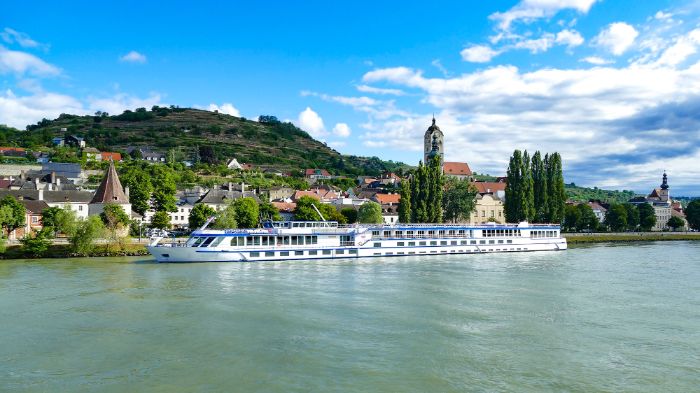
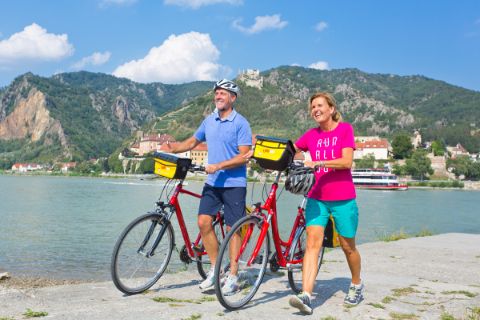
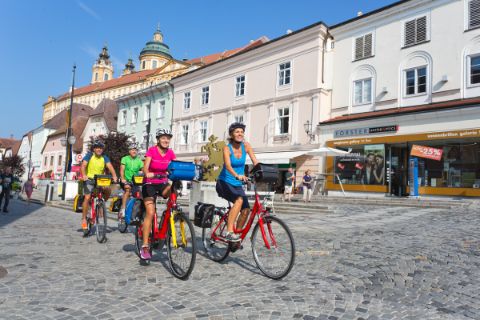

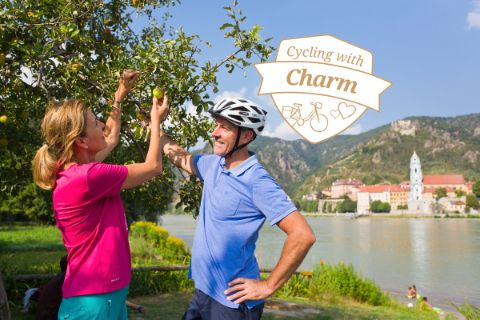
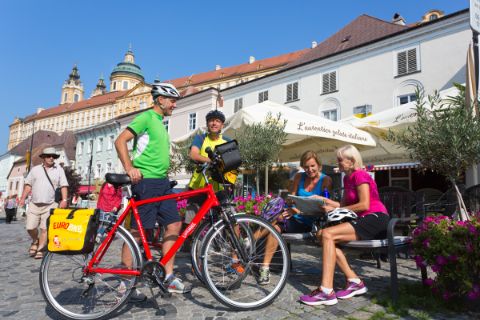
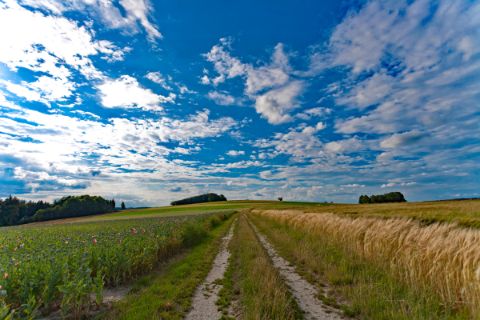
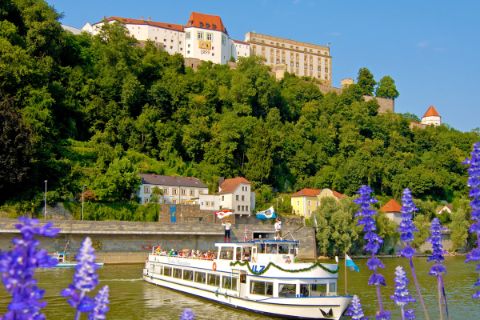
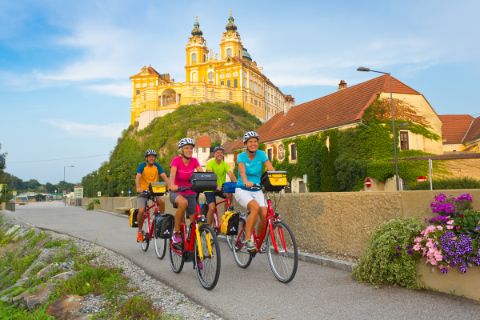
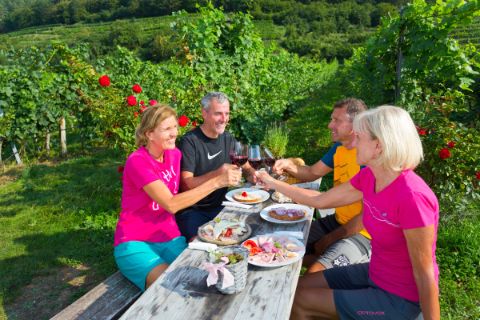
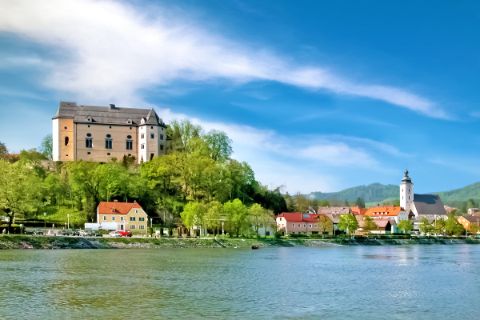
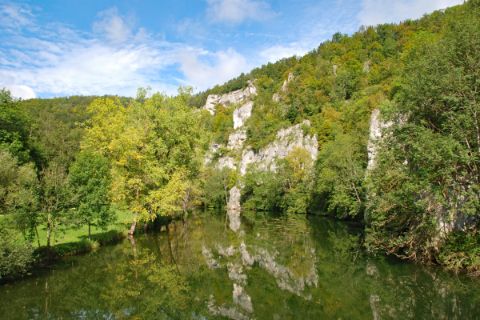
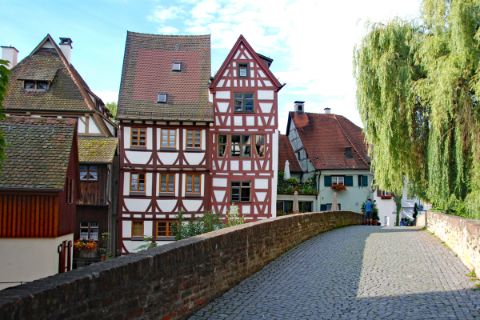
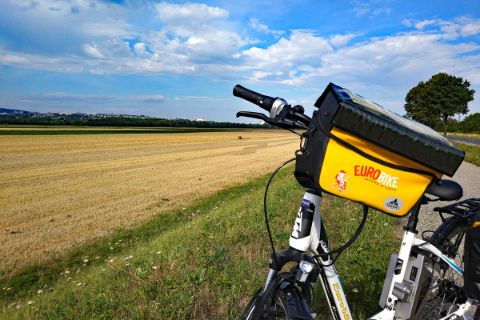
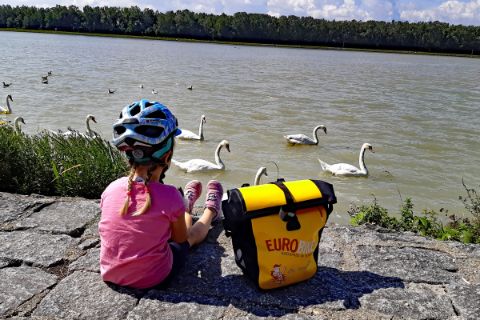
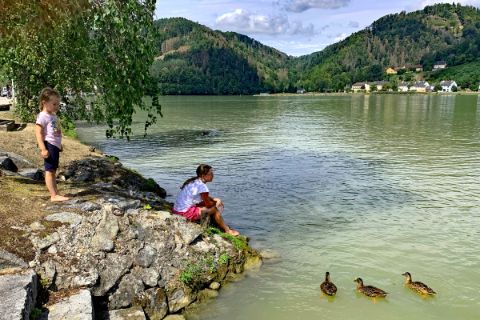
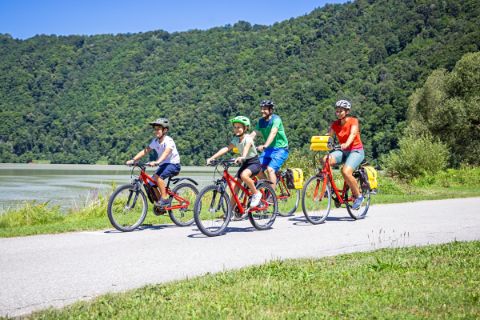
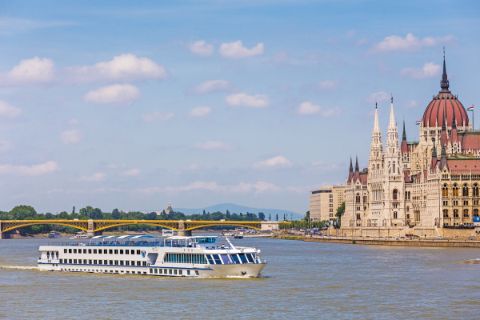

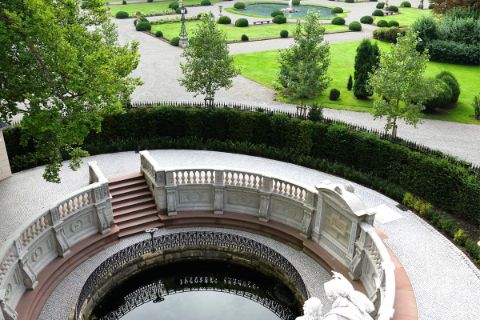
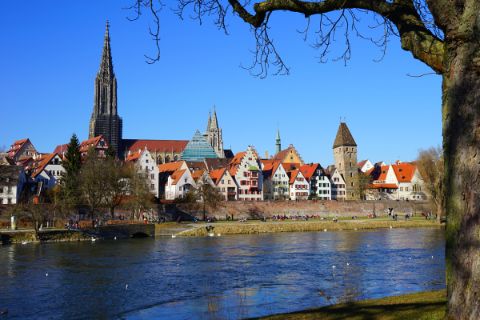
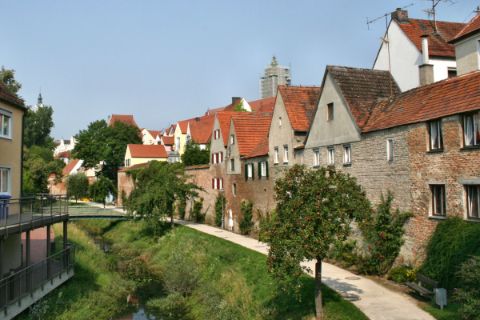
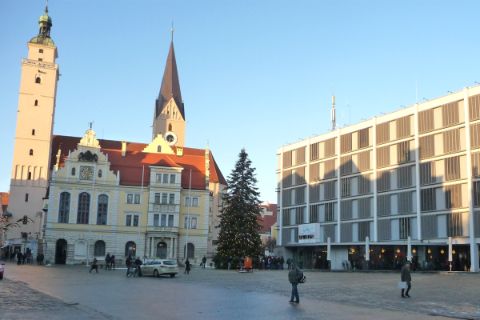
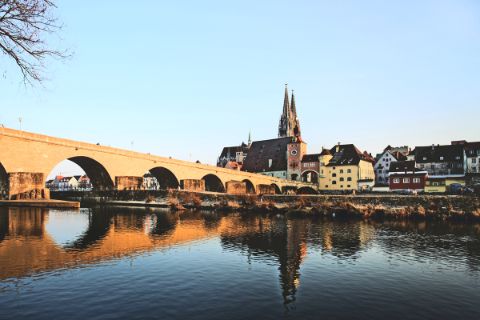
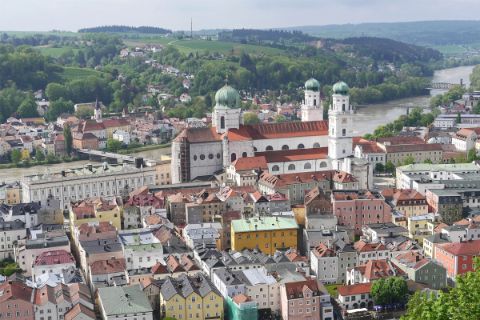
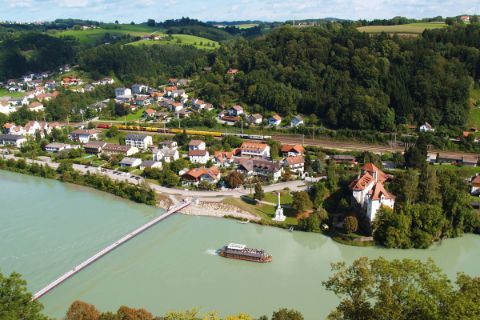
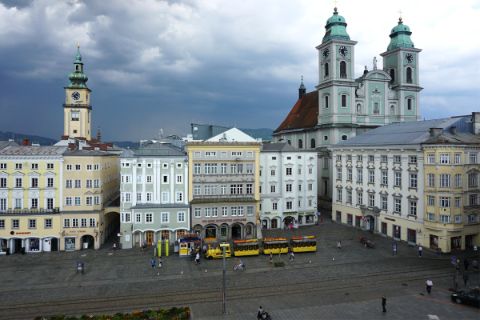
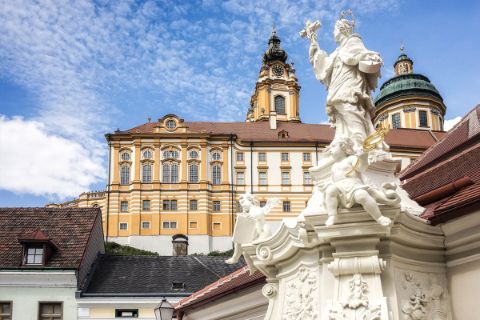
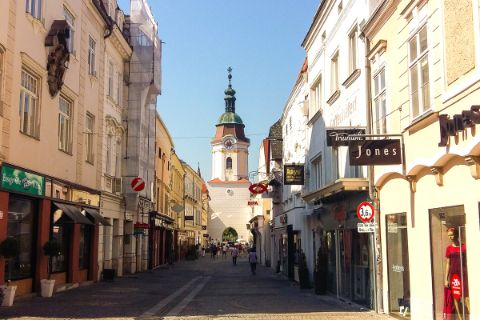
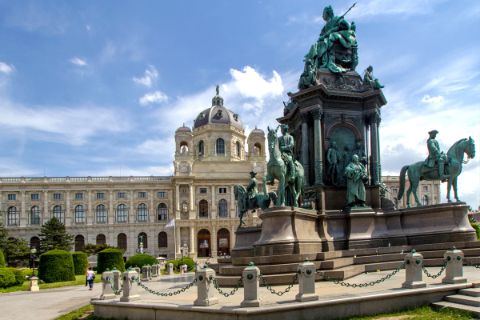
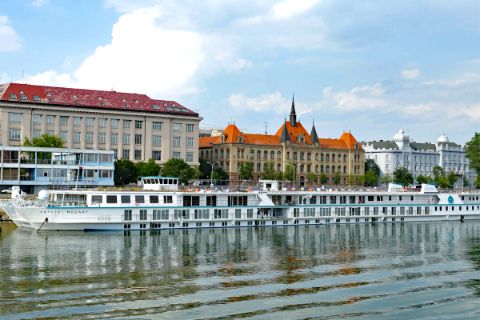
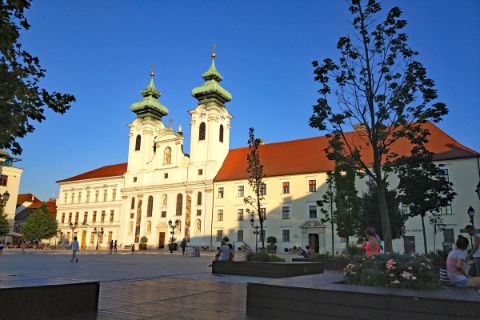
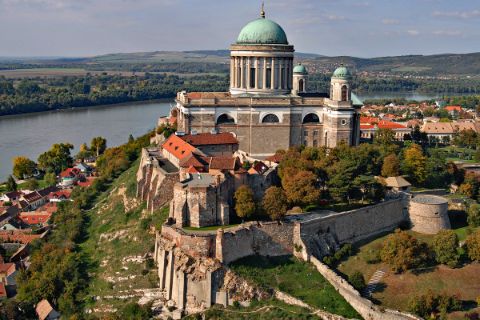
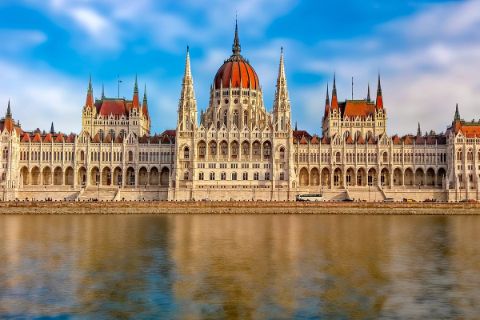
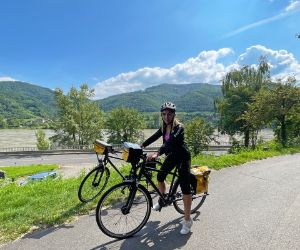
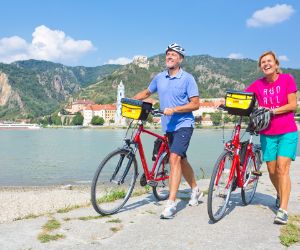
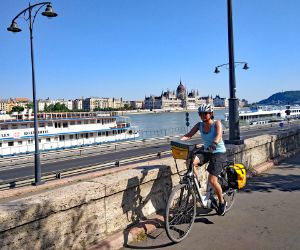
-mosellandtouristik-gmbh-16-1.jpg/jcr:content/eb-radreise-mosel-radweg-bummlertour-radfahrer-pause-(c)-mosellandtouristik-gmbh-16-1.jpg)
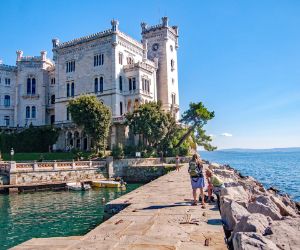
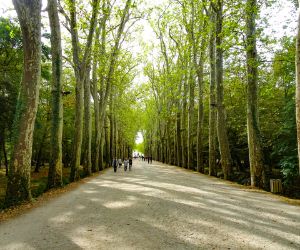
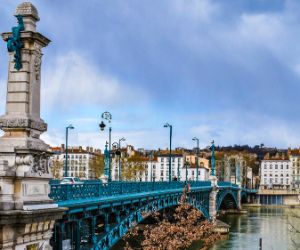
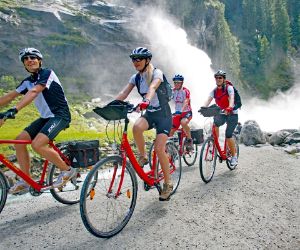
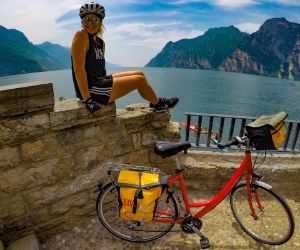
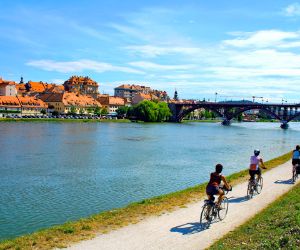
www.innsbruckphotos.at-15.jpg/jcr:content/eb-st-moritz-innsbruck-innsbruck-inn-(c)www.innsbruckphotos.at-15.jpg)
